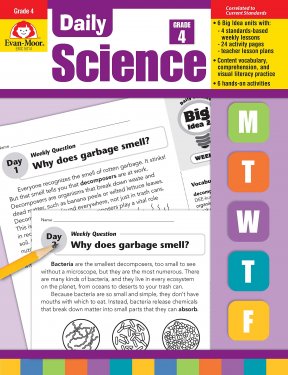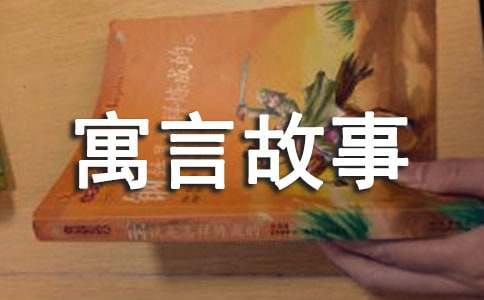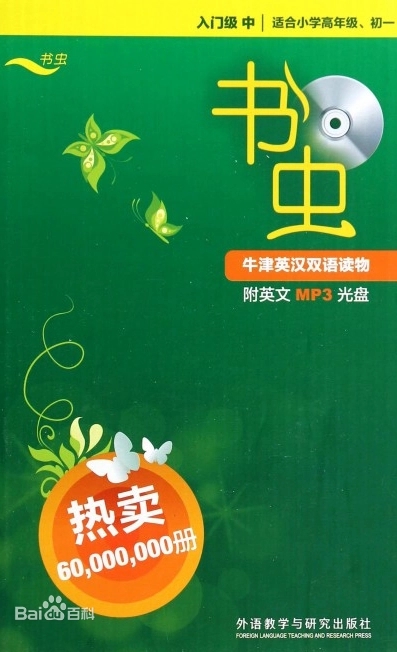美国科学EVAN-MOOR science四年级练习题目亲子伴读网

资源介绍
- 资源类型国产软件
- 来源渠道百度网盘
- 界面语言简体中文
- 资源大小145MB
- 文件类型PDF电子文档
- 支持设备手机|电脑|智能电视|平板电脑
Keep the enthusiasm students have for science at the early childhood level alive into upper elementary school with Evan-Moor s Daily Science book. This grade four print teacher s edition contains 150 daily lessons. Students will learn important Earth, physical and life science concepts through hands-on activities, vocabulary practice and multiple choice comprehension tests. Each week is divided into five daily concentrated lessons that answer interesting questions such as is it safe to eat moldy food and how does bacteria cause cavities? Students explore these concepts and more through the scientific method, forming conclusions based on outcomes just like scientists.
Fit standards-based science instruction into your curriculum!
Help your grade 4 students develop a genuine understanding of standards-based scientific concepts and vocabulary using the 150 engaging activities in Daily Science! A variety of rich resources, including vocabulary practice, hands-on science activities, and comprehension tests in multiple-choice format, help you successfully introduce students to earth, life, and physical science concepts.
30 weeks of instruction cover the following standards-based science topics:
Big Idea 1: Plants and animals depend on each other and on their environment for survival
-Week 1: Why do beavers build dams?
-Week 2: Why do some plants have fruit
-Week 3: Do all bees make honey?
-Week 4: Where do animals get food in the winter?
-Week 5: Unit Review
Big Idea 2: Most microorganisms do not cause disease, and many are beneficial
-Week 1: Why does garbage smell?
-Week 2: How do bacteria create cavities?
-Week 3: Are all germs bad?
-Week 4: Is it safe to eat moldy food?
-Week 5: Unit Review
Big Idea 3: Both slow and rapid processes - from erosion to earthquakes - shape and reshape the Earth's surface
-Week 1: How was the Grand Canyon formed?
-Week 2: Do glaciers really move?
-Week 3: What makes volcanoes erupt?
-Week 4: What causes earthquakes?
-Week 5: Unit Review
Big Idea 4: The properties of rocks and minerals reflect the process that formed them
-Week 1: What's the difference between a rock and a mineral?
-Week 2: Where do rocks come from?
-Week 3: Are some rocks valuable?
-Week 4: Do all rocks come from Earth?
-Week 5: Unit Review
Big Idea 5: Electrical energy can be converted into heat, light, sound, and motion
-Week 1: How do toasters work?
-Week 2: What lights a digital clock?
-Week 3: How do hearing aids help people hear?
-Week 4: How do electric cars work?
-Week 5: Unit Review
Big Idea 6: People invented machines to make work easier
-Week 1: Why do some building entrances have ramps?
-Week 2: What's the difference between a nail and a screw?
-Week 3: How do elevators work?
-Week 4: How does a wheelbarrow make works easier?
-Week 5: Unit Review
通过 Evan-Moor 的《每日科学》一书,让学生在幼儿阶段对科学的热情一直延续到高年级。这本四年级印刷版教师版包含 150 节日常课程。学生将通过实践活动、词汇练习和多项选择题理解测试学习重要的地球、物理和生命科学概念。每周分为五个日常集中课程,回答有趣的问题,例如吃发霉的食物是否安全以及细菌如何导致蛀牙?学生通过科学方法探索这些概念以及更多内容,像科学家一样根据结果得出结论。
将基于标准的科学教学纳入您的课程!
使用每日科学中的 150 个引人入胜的活动,帮助您的 4 年级学生真正理解基于标准的科学概念和词汇!各种丰富的资源,包括词汇练习、实践科学活动和多项选择形式的理解测试,帮助您成功地向学生介绍地球、生命和物理科学概念。
30 周的指导涵盖以下基于标准的科学主题:





